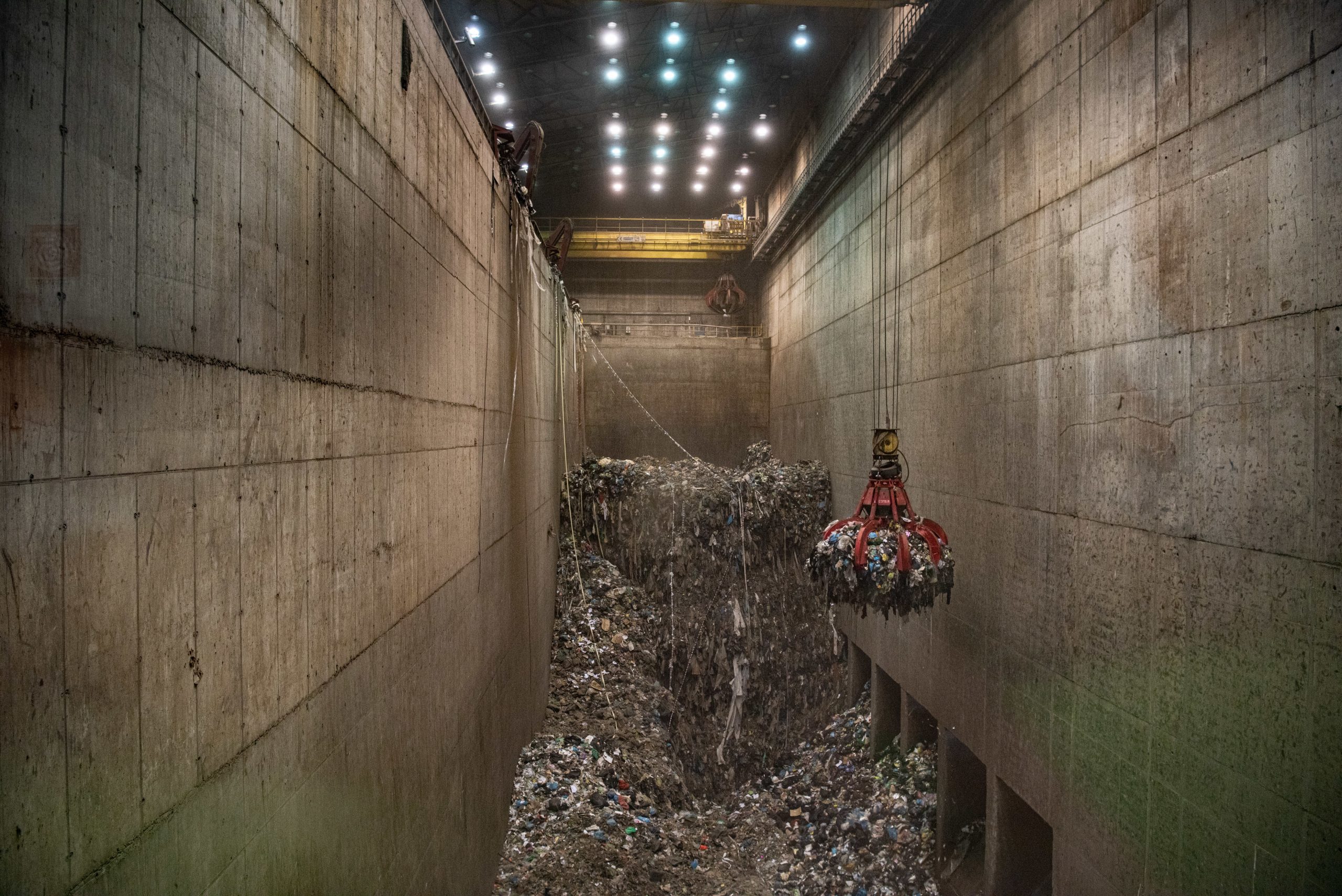
Incineration contracts stopping Scots from recycling
New research shows that Scotland’s incineration capacity is so high that it is likely to stop councils from recycling waste. Campaigners are calling for a ban on new incinerators so that councils focus on reducing and recycling waste, rather than sending it up in smoke.
The Scottish Government set up an independent review into incineration which is currently taking place. As part of this, the reviewers have researched whether existing and planned incineration capacity matches Scotland’s projected waste levels. It shows that if Scotland meets its recycling targets, by next year we will already have more incineration capacity than we need. Even if we make no progress towards these targets, there will still be overcapacity by 2026.
The 2025 ban on sending biodegradable municipal waste to landfill means councils have had to find some other way to dispose of waste. Rather than attempting to reduce the waste through recycling and other measures, councils have signed up to expensive and lengthy incineration contracts.
It is now emerging that the amount of waste councils have agreed to supply is greater than the waste available. This means to fulfil their contracts, councils must supply huge amounts of waste to be burnt, instead of focusing on reducing and recycling.
Kim Pratt, circular economy campaigner at Friends of the Earth Scotland, said:
“The Scottish Government has unwittingly created the perfect conditions for waste management companies to make as much money as possible from keeping Scotland’s waste levels high. The ban on biodegradable waste to landfill means councils have sought alternative waste management solutions in a hurry.
“Councils have panicked and signed up to contracts that now create a conflict of interests. They are faced with choosing between helping residents reduce and recycle their waste and fulfilling the incineration contracts. Through a lack of strategic thinking, the Government and councils have ensured Scotland’s recycling targets are now much harder to achieve.
“It’s vital we stop burning our valuable resources if we are to bring down the consumption levels that are wrecking the planet. We need to see an end to new incinerators being built in Scotland, and an immediate ban on burning plastics.”
This overcapacity problem is evident at a local level, as well as a national one. Three councils in the North East of Scotland, Aberdeen City, Aberdeenshire and Moray Councils, have signed a joint contract to build and supply a privately run incinerator. The NESS Energy Project is due to start operating later this year.
The incinerator has been built to take 150,000 tonnes of waste. The Environmental Statement for the project shows this was based on the amount of residual waste generated from the councils in 2016 when planning permission was granted. However, data from SEPA shows that, even before the plant has opened, there will not be enough household residual waste to supply the plant. The 20-year contracts mean these councils will be looking for more material to burn, rather than supporting residents to reduce and recycle waste.
Scotland is now burning almost as much of its household waste as it is sending to landfill. Household waste statistics published in December show a 33.6% increase in waste being incinerated between 2019 and 2020 – that’s an extra 152,000 tonnes burnt in one year.
As well as burning valuable resources, incinerators contribute to climate change by emitting greenhouse gases from the waste they burn.
Briefing on incineration capacity (including more information on the Aberdeen example): https://foe.scot/resource/briefing-on-incineration-capacity-in-scotland/
Image credit: Simon Tramonte – Climate Visuals Countdown
To find out more visit: www.foe.scot/campaign/plastic-pollution/incineration/
FoES briefing on incineration: https://foe.scot/resource/incineration-briefing/
SEPA household waste data 2019: https://www.sepa.org.uk/environment/waste/waste-data/waste-data-reporting/household-waste-data/
Scottish Government (2021) Incineration Review Call for Evidence
